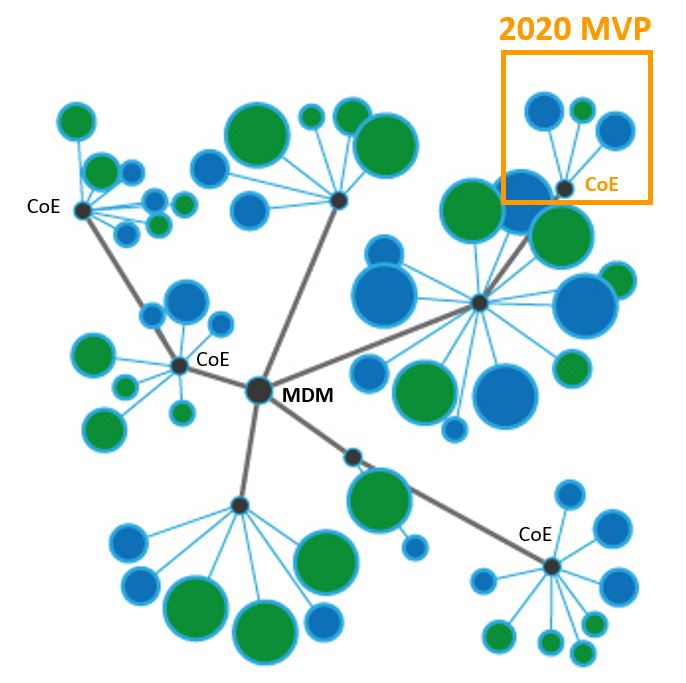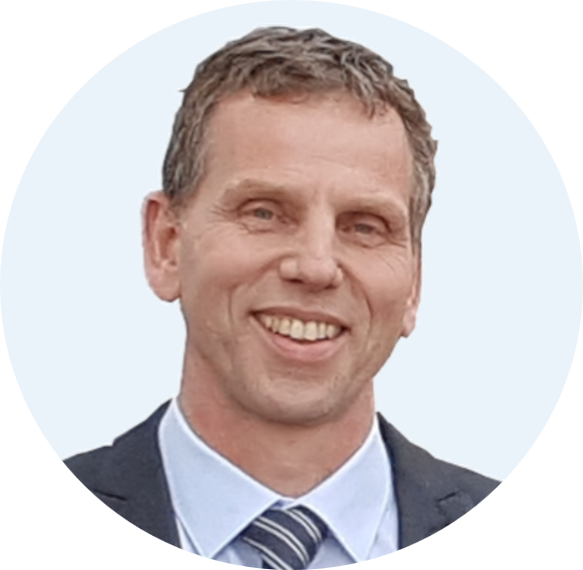Establishment of a hybrid EU organizational structure
How can motivated, powerful and independently operating organizations work together for evidence-based climate neutrality in 2035?
The hybrid structure of the sustainable data platform brings together professional for-profit and non-profit actors for the common good. The goal is to capture value for the common good that goes beyond a company, organization or association. Companies, energy agencies, institutes and non-profit foundations with many years of experience in climate protection and digitalization work together on the platform to achieve this.
Minimum viable products 2020: initial work
The first work has been taking place prototypically since 2020 to achieve initial benefits in the modules based on the platform code. The aim is to improve processes started at the working level according to the design thinking method, to ensure the quality of the platform modules and to implement initial tools in business models.
At the same time, the aim is to establish a European structure that meets long-term requirements and is capable of growth.

Simplified visualization of the hybrid (blue = for-profit, green = non-profit) network structure with multiple Centers of Expertise (CoE) and a Master Data (and Community) Management (MDM). The demarcation (orange) 2020 MVP illustrates the construction of the first “minimum viable products” as the basis of the scalable platform.
Steadiness: Requirements for sustainable successful implementation
Structures are to be set up for sdp to ensure long-term independent operation in accordance with its intended purpose. The structures should also enable rapid, strong growth, i.e. broad application and implementation of the tools and concepts developed on the platform.
The task of the platform is to support the diversity of participants in the socially responsible transformation to climate neutrality on the basis of valid data. This requires multidisciplinary, digitally supported management requirements for participatory hybrid organizations with a balance between non-profit and for-profit actors.
Organizational structure
The task of the organization is to ensure operation in accordance with the codex, independence in terms of financial interests and an financially self-sufficient work. The legal entity may be a foundation, an association of foundations or a European cooperative.
Success indicators for the operation of the sdp are to be developed (e.g. environmental impacts achieved directly and indirectly, indirectly e.g. through effectiveness in policy). Other indicators include, e.g., meeting the SDGs and measurable indicators such as maximum housing cost burden (energy-related utility costs). One performance indicator is the social satisfaction of volunteer and professional stakeholders and the management of conflicts between stakeholders.
Operational tasks
Operational implementation involves the permanent coordination of new and diverse activities and their quality assurance. The task is the implementation of the processes, support and further development of the platform offers. From public relations to the coordination of participants, the implementation of meetings, the clarification of legal issues and product development to user service.
Further tasks are the support of participation processes and business models as well as the support of private individuals, companies and civil society organizations. A particular challenge is the support of concrete business processes, where it must be ensured that the data is handled in a valid, secure and codex-compliant manner. The protection of the intellectual property of start-ups and smaller companies in particular must be taken into account.

